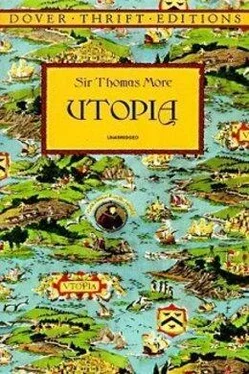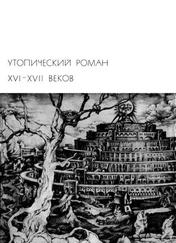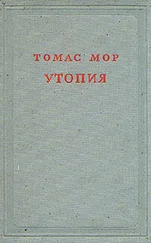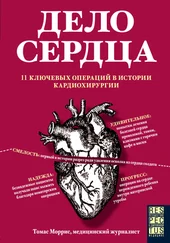1 ...7 8 9 11 12 13 ...24 "And thus from the great numbers among them that are neither suffered to be idle nor to be employed in any fruitless labour, you may easily make the estimate how much may be done in those few hours in which they are obliged to labour. But, besides all that has been already said, it is to be considered that the needful arts among them are managed with less labour than anywhere else. The building or the repairing of houses among us employ many hands, because often a thriftless heir suffers a house that his father built to fall into decay, so that his successor must, at a great cost, repair that which he might have kept up with a small charge; it frequently happens that the same house which one person built at a vast expense is neglected by another, who thinks he has a more delicate sense of the beauties of architecture, and he, suffering it to fall to ruin, builds another at no less charge. But among the Utopians all things are so regulated that men very seldom build upon a new piece of ground, and are not only very quick in repairing their houses, but show their foresight in preventing their decay, so that their buildings are preserved very long with but very little labour, and thus the builders, to whom that care belongs, are often without employment, except the hewing of timber and the squaring of stones, that the materials may be in readiness for raising a building very suddenly when there is any occasion for it. As to their clothes, observe how little work is spent in them; while they are at labour they are clothed with leather and skins, cut carelessly about them, which will last seven years, and when they appear in public they put on an upper garment which hides the other; and these are all of one colour, and that is the natural colour of the wool. As they need less woollen cloth than is used anywhere else, so that which they make use of is much less costly; they use linen cloth more, but that is prepared with less labour, and they value cloth only by the whiteness of the linen or the cleanness of the wool, without much regard to the fineness of the thread. While in other places four or five upper garments of woollen cloth of different colours, and as many vests of silk, will scarce serve one man, and while those that are nicer think ten too few, every man there is content with one, which very often serves him two years; nor is there anything that can tempt a man to desire more, for if he had them he would neither be the, warmer nor would he make one jot the better appearance for it. And thus, since they are all employed in some useful labour, and since they content themselves with fewer things, it falls out that there is a great abundance of all things among them; so that it frequently happens that, for want of other work, vast numbers are sent out to mend the highways; but when no public undertaking is to be performed, the hours of working are lessened. The magistrates never engage the people in unnecessary labour, since the chief end of the constitution is to regulate labour by the necessities of the public, and to allow the people as much time as is necessary for the improvement of their minds, in which they think the happiness of life consists.
"But it is now time to explain to you the mutual intercourse of this people, their commerce, and the rules by which all things are distributed among them.
"As their cities are composed of families, so their families are made up of those that are nearly related to one another. Their women, when they grow up, are married out, but all the males, both children and grand–children, live still in the same house, in great obedience to their common parent, unless age has weakened his understanding, and in that case he that is next to him in age comes in his room; but lest any city should become either too great, or by any accident be dispeopled, provision is made that none of their cities may contain above six thousand families, besides those of the country around it. No family may have less than ten and more than sixteen persons in it, but there can be no determined number for the children under age; this rule is easily observed by removing some of the children of a more fruitful couple to any other family that does not abound so much in them. By the same rule they supply cities that do not increase so fast from others that breed faster; and if there is any increase over the whole island, then they draw out a number of their citizens out of the several towns and send them over to the neighbouring continent, where, if they find that the inhabitants have more soil than they can well cultivate, they fix a colony, taking the inhabitants into their society if they are willing to live with them; and where they do that of their own accord, they quickly enter into their method of life and conform to their rules, and this proves a happiness to both nations; for, according to their constitution, such care is taken of the soil that it becomes fruitful enough for both, though it might be otherwise too narrow and barren for any one of them. But if the natives refuse to conform themselves to their laws they drive them out of those bounds which they mark out for themselves, and use force if they resist, for they account it a very just cause of war for a nation to hinder others from possessing a part of that soil of which they make no use, but which is suffered to lie idle and uncultivated, since every man has, by the law of nature, a right to such a waste portion of the earth as is necessary for his subsistence. If an accident has so lessened the number of the inhabitants of any of their towns that it cannot be made up from the other towns of the island without diminishing them too much (which is said to have fallen out but twice since they were first a people, when great numbers were carried off by the plague), the loss is then supplied by recalling as many as are wanted from their colonies, for they will abandon these rather than suffer the towns in the island to sink too low.
"But to return to their manner of living in society: the oldest man of every family, as has been already said, is its governor; wives serve their husbands, and children their parents, and always the younger serves the elder. Every city is divided into four equal parts, and in the middle of each there is a market–place. What is brought thither, and manufactured by the several families, is carried from thence to houses appointed for that purpose, in which all things of a sort are laid by themselves; and thither every father goes, and takes whatsoever he or his family stand in need of, without either paying for it or leaving anything in exchange. There is no reason for giving a denial to any person, since there is such plenty of everything among them; and there is no danger of a man's asking for more than he needs; they have no inducements to do this, since they are sure they shall always be supplied: it is the fear of want that makes any of the whole race of animals either greedy or ravenous; but, besides fear, there is in man a pride that makes him fancy it a particular glory to excel others in pomp and excess; but by the laws of the Utopians, there is no room for this. Near these markets there are others for all sorts of provisions, where there are not only herbs, fruits, and bread, but also fish, fowl, and cattle. There are also, without their towns, places appointed near some running water for killing their beasts and for washing away their filth, which is done by their slaves; for they suffer none of their citizens to kill their cattle, because they think that pity and good–nature, which are among the best of those affections that are born with us, are much impaired by the butchering of animals; nor do they suffer anything that is foul or unclean to be brought within their towns, lest the air should be infected by ill–smells, which might prejudice their health. In every street there are great halls, that lie at an equal distance from each other, distinguished by particular names. The Syphogrants dwell in those that are set over thirty families, fifteen lying on one side of it, and as many on the other. In these halls they all meet and have their repasts; the stewards of every one of them come to the market–place at an appointed hour, and according to the number of those that belong to the hall they carry home provisions. But they take more care of their sick than of any others; these are lodged and provided for in public hospitals. They have belonging to every town four hospitals, that are built without their walls, and are so large that they may pass for little towns; by this means, if they had ever such a number of sick persons, they could lodge them conveniently, and at such a distance that such of them as are sick of infectious diseases may be kept so far from the rest that there can be no danger of contagion. The hospitals are furnished and stored with all things that are convenient for the ease and recovery of the sick; and those that are put in them are looked after with such tender and watchful care, and are so constantly attended by their skilful physicians, that as none is sent to them against their will, so there is scarce one in a whole town that, if he should fall ill, would not choose rather to go thither than lie sick at home.
Читать дальше
Конец ознакомительного отрывка
Купить книгу








